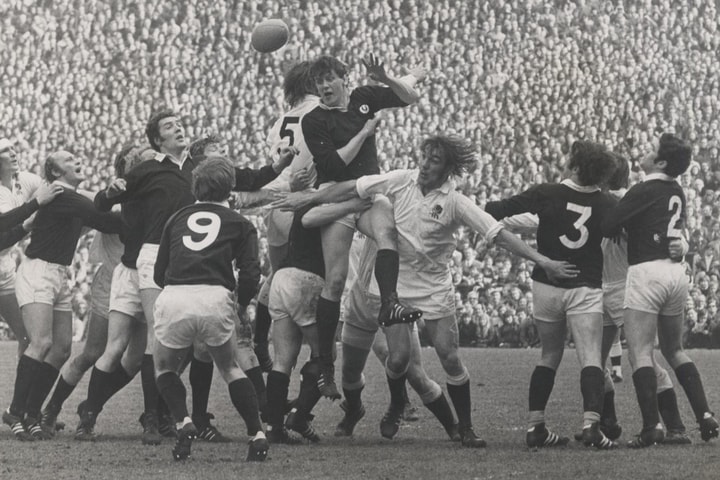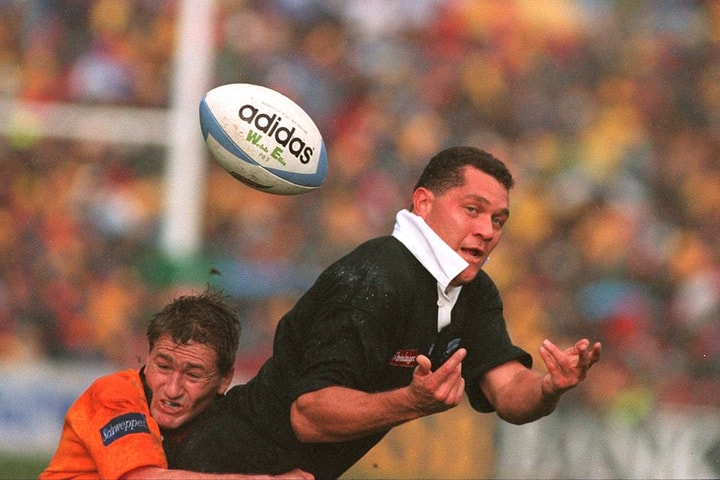France had their own experienced captain in the shape of centre
Nathalie Amiel; and the equally threatening full back Annick
Heyraud and Estelle Sartini providing tries from the midfield.
Their powerful forwards were adept at shutting out the opposition
and France came through their first two matches without having
conceded a point, winning 24-0 against Spain and 20-0 against
Wales.
France and England therefore would meet in Round Three as the
only two undefeated sides. The match would be played at Stade Léon
Sausset in Tournon-Sur-Rhone, south of Lyon. Amiel's side began at
a frantic pace with wing Annabel Donnadieu scoring France's first
try in the third minute. Santini converted before English fly half
Shelley Rae landed a penalty, making the score 7-3 to the home
side.
A converted Catherine Devilliers try from the opposite wing in
the 22nd minute extended France's lead to 14-3, before England
captain Paula George struck back to cut France's lead to 14-8 at
half time. Rae narrowed the gap to three points with a penalty at
the start of the second half but Sartini crossed the line for
France's third try shortly after. Further points came from the
boots of both Sartini and Rae, but the Red Roses were never able to
close the gap and France secured a hard-earned 22-17 win.
Having beaten Spain and Ireland away, Scotland remained in
contention for the title, if they could beat France at Inverleith
in Round Four. Scotland had been competitive since Kim Littlejohn's
side had won the Home Nations Championship in 1998 and were
unlikely to make life easy for France on home soil. In the event
Amiel's side were too strong. A 22-12 victory took them within one
win of a maiden Grand Slam.
England had beaten Wales and would beat Spain in their final
match, meaning that France would need to beat Ireland to confirm
their place in history. Newcomers Ireland, captained by Suzanne
Flemming and with Fiona Steed in the second row, hadn't featured in
the any of the championships since 1999 and remained a side in
development. The experienced France side took no chances and
completed a 46-0 victory, in Melun, to claim the inaugural Six
Nations Championship and their first championship victory.







